Fall 2024 Speakers
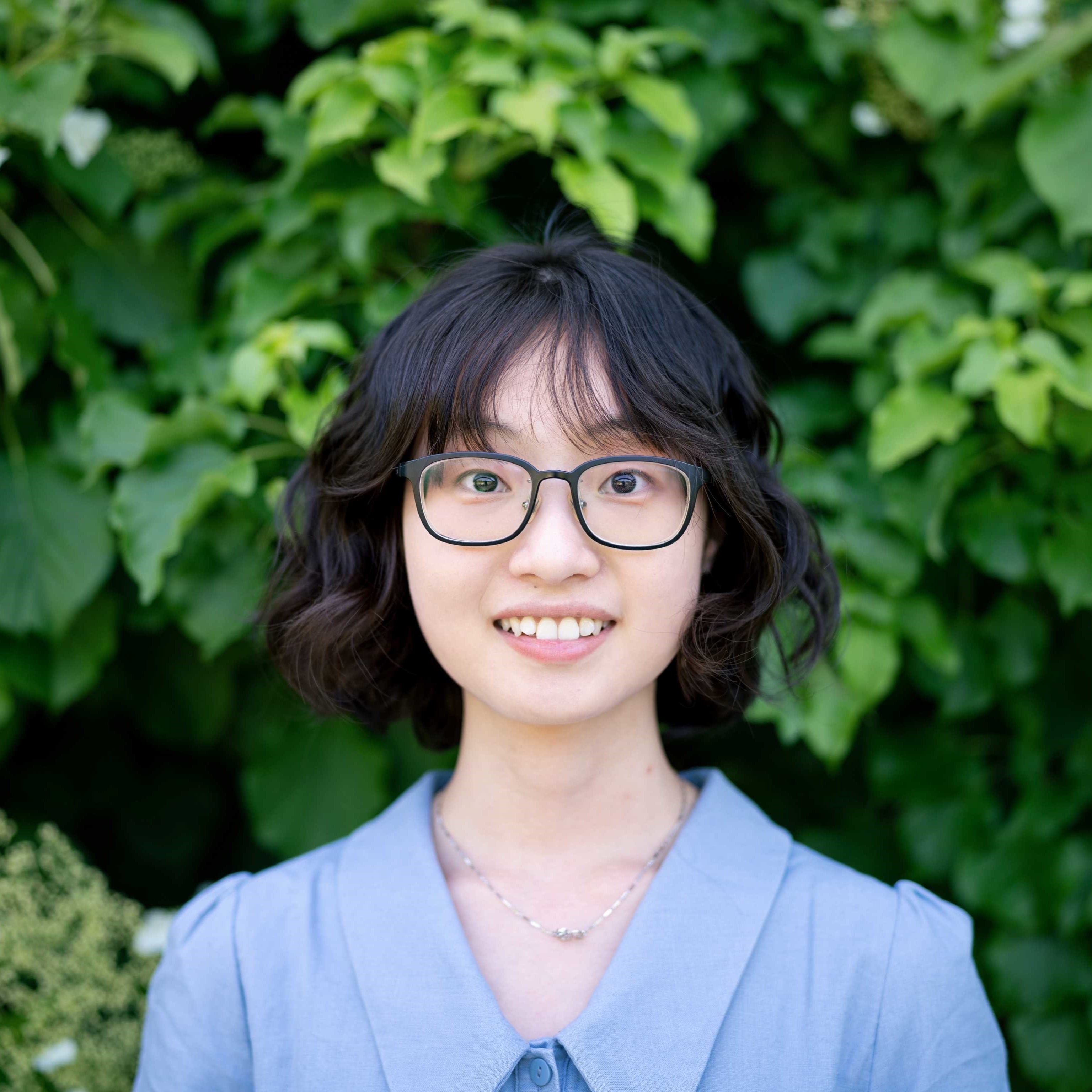
Intelligent Textiles for Physical Interactions
November 14, 2024
12:00 p.m. Lunch; 12:30 p.m. Talk
Location: TSRB 1st Floor Ballroom, 85 Fifth St NW, Atlanta, GA 30308
Speaker: Yiyue Luo, Assistant Professor, University of Washington
Abstract: umans engage in a wide variety of daily activities by constantly interacting with the environment physically. Recording, modeling, and augmenting such physical interactions are fundamental to understanding human behaviors, promoting health monitoring and delivery, and fostering human-centric intelligent system designs. However, challenges arise from the pervasive and diverse nature of physical interactions: they occur across the human body at extended duration, are subjectively perceived by individuals and involve diverse input-output modalities. Practically deployable integrated interfaces for physical interactions are required to be scalable, seamlessly integrated, robust, and adaptable.
In this talk, I will present three integrated textile-based systems for the recording, modeling, and augmentation of tactile interactions. First, I will introduce digital machine knitted full-sized tactile sensing garments for learning human-environment interactions. Then, I will briefly showcase the recording and modeling of tactile interactions in an ambient sensing scenario via an intelligent carpet. Lastly, I will describe adaptive tactile interactions transfer via digitally embroidered smart gloves. These innovations exemplify the opportunities by the combination of digital fabrication and artificial intelligence, enabling seamless observation of human activities, in-depth analysis of interactions with the surroundings, and strategies to augment our behaviors and intelligent systems.
Bio: Yiyue is an Assistant Professor at University of Washington ECE. She received her Ph.D. degree in EECS from MIT in 2024 and a B.S. degree in Materials Science & Engineering from UIUC in 2017. Her research lies at the intersection of digital fabrication, human-computer/robot interaction, and applied AI. Her research on integrated intelligent textiles has been published in interdisciplinary journals, e.g., Nature Electronics and Nature Communications, top human-computer interactions, robotics and learning venues, e.g., CHI, UIST, CVPR, ICRA. Her work has been selected as the cover of Nature Electronics, awarded Best Paper Honorable Mention at CHI, featured in prominent media outlets, and invited to public museums and world congress exhibitions. She has been supported by fellowship from MathWorks, Google, and Accenture, and was recently listed as 30 under 30 North American 2024.
---
IPaT's fall 2024 lunch lecture calendar and lecture/talk (day of) streaming info can be found here: https://research.gatech.edu/ipat/lunch-lectures.
The IPaT: GVU Lunch Lecture Series is free and features guest speakers presenting on topics related to people-centered technologies and their impact on society. Lunch is provided at 12:00 p.m. and the talks begin at 12:30 p.m. Join us weekly or watch video replays.
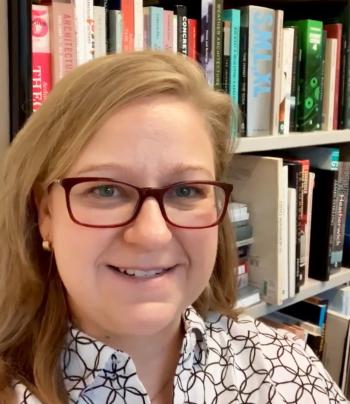
Challenging Erasure: Collaborative Architectural Documentation and Historic Interpretation
November 7, 2024 (CANCELLED)
12:00 p.m. Lunch; 12:30 p.m. Talk
Location: TSRB 1st Floor Ballroom, 85 Fifth St NW, Atlanta, GA 30308
Speaker: Danielle S. Willkens, Associate Professor, School of Architecture, Georgia Tech
Abstract: How can we study and reveal the hidden, or repressed, histories within the built environment that illuminate a more complete and accurate record of our shared history? This talk will feature ongoing documentation, visualization, and historic interpretation work at modern civil rights sites in the southern U.S., and how expanded narratives can pave the way for a more resilient and inclusive future.
Bio: Danielle S. Willkens is an Associate Professor in Georgia Institute of Technology’s School of Architecture and the Initiative Lead for Just, Resilient & Informed Communities at the Institute for People and Technology (IPaT). Her research has been supported by the American Institute of Architects’ (AIA) Center for Architecture, Sir John Soane’s Museum Foundation, the International Center for Jefferson Studies, the American Philosophical Society Franklin Research Grant, the Society of Architectural Historians and the National Center for Preservation Training and Technology. She holds an PhD from the Bartlett School of Architecture, a M.Phil from the University of Cambridge, and a M.Arch and BS from the University of Virginia.
---
IPaT's fall 2024 lunch lecture calendar and lecture/talk (day of) streaming info can be found here: https://research.gatech.edu/ipat/lunch-lectures.
The IPaT: GVU Lunch Lecture Series is free and features guest speakers presenting on topics related to people-centered technologies and their impact on society. Lunch is provided at 12:00 p.m. and the talks begin at 12:30 p.m. Join us weekly or watch video replays.

Comprehending Human Behaviors with Everyday Wearables
October 31, 2024
12:00 p.m. Lunch; 12:30 p.m. Talk
Location: TSRB 1st Floor Ballroom, 85 Fifth St NW, Atlanta, GA 30308
Speaker: Cheng Zhang, Assistant Professor in Information Science at Cornell University, Lead Researcher at Smart Computer Interfaces for Future Interactions Lab
Abstract: Despite the rapid advancement of AI, computers' ability to comprehend human behaviors remains limited. For instance, commodity computing devices still face challenges in understanding even basic human daily activities such as eating and drinking. The primary obstacle lies in the absence of suitable sensing technologies capable of capturing and interpreting high-quality behavioral data in everyday settings. In this presentation, I will share my research on the development of everyday wearables that are minimally-obtrusive, privacy-aware, and low-power, yet capable of capturing and comprehending various body movements and poses that humans employ in their everyday activities. First, I will show how these sensing technologies can empower various everyday wearable form factors, including wristbands, necklaces, earphones, headphones, and glasses, to track essential body postures, such as facial expressions, gaze, finger poses, limb poses, as well as gestures on teeth and tongue. Then, I will demonstrate how, when paired with state-of-the-art AI, these everyday wearables can revolutionize how computers comprehend human behaviors. Specifically, I will focus on applications related to activity recognition, accessibility, and health sensing. Finally, I will discuss the prospects and challenges associated with the integration of AI and wearables to support users in the future of everyday computing.
Bio: Cheng Zhang is a tenure-track Assistant Professor in Information Science and Computer Science (Field) at Cornell University, where he leads the Smart Computer Interfaces for Future Interactions (SciFi) Lab. His research focuses on designing, developing, and evaluating intelligent sensing systems, particularly minimally-obtrusive wearables, to seamlessly comprehend and predict human behaviors and intentions, thereby supporting users in areas such as accessibility, health sensing, and activity recognition. Cheng earned his Ph.D. in Computer Science from Georgia Institute of Technology. He published at top-venues such as Ubicomp/IMWUT, UIST, CHI, ISWC, MobiCom, IUI, MobileHCI, and holds numerous patents. His research has been recognized with honors such as the NSF CAREER Award, the 10-Year Impact Award at Ubicomp, and several Best Paper awards and honorable mentions. His work has been featured by BBC, Forbes, New Scientist, DigitalTrends, CNET, Fast Company, Popular Science, Engadget, Gizmodo, NowThis, and Mashable. Cheng is the steering committee co-chair for International Symposium on Wearable computers(ISWC) and a member of the steering committee on International Joint Conference on Pervasive and Ubiquitous Computing (Ubicomp). He served as technical program committee (TPC) co-chair for ISWC 2023 and Ubicomp 2024.
---
IPaT's fall 2024 lunch lecture calendar and lecture/talk (day of) streaming info can be found here: https://research.gatech.edu/ipat/lunch-lectures.
The IPaT: GVU Lunch Lecture Series is free and features guest speakers presenting on topics related to people-centered technologies and their impact on society. Lunch is provided at 12:00 p.m. and the talks begin at 12:30 p.m. Join us weekly or watch video replays.
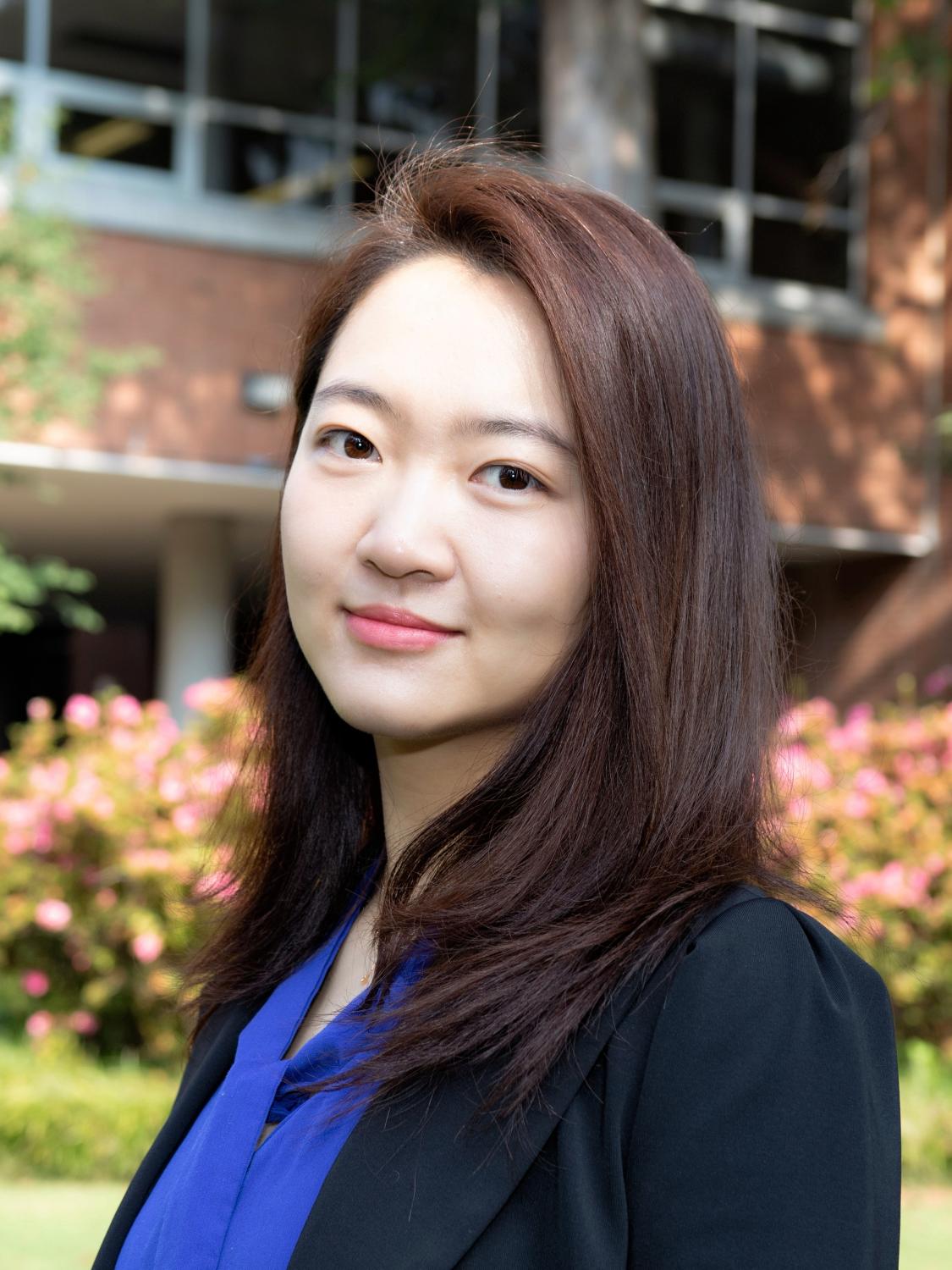
Understanding the Impact of Floods on Critical Infrastructure Networks
October 24, 2024
12:00 p.m. Lunch; 12:30 p.m. Talk
Location: TSRB 1st Floor Ballroom, 85 Fifth St NW, Atlanta, GA 30308
Speaker: Yiyi He, Assistant Professor, School of City and Regional Planning (SCaRP) at the College of Design at Georgia Tech
Abstract: Critical infrastructure networks provide socio-economic services across local and regional scales. However, population and economic growth, urbanization, increasing infrastructure interdependency, and natural hazards – not least due to the worsening effects of climate change – are putting these infrastructure systems under increasing pressure. Given future climatic variations, a comprehensive understanding of the potential impact of climate-change-induced natural hazards on the intra- and interconnected critical infrastructure networks and network resilience options is still absent. Through three types of infrastructure networks as case studies, this talk discusses approaches to better understand climate change impacts on critical infrastructure networks.
Bio: Yiyi He is an assistant professor in the School of City and Regional Planning (SCaRP) at the College of Design at Georgia Tech. Her research centers on the interdisciplinary fields of urban planning, GIScience, climate science, and artificial intelligence. She is interested in better understanding the uncertainty and asymmetric impacts of climate-change-induced extreme weather events (e.g., flooding, wildfires, extreme heat) on critical components of the built environment (e.g., lifeline infrastructure networks, vulnerable neighborhoods). She leverages data-driven approaches, such as GIS, network science, hyperspectral remote sensing, machine learning, and spatial statistics, to tackle complex challenges in climate change and resilience research and to inform more intelligent planning and policy directives. Her previous work involved using 3D hydrodynamic flood models to simulate flooding under different climate change scenarios and analyze the impact of coastal and inland flooding on critical infrastructure networks. She received her bachelor’s degree from Nanjing University and her master’s and Ph.D. degrees from UC Berkeley.
---
IPaT's fall 2024 lunch lecture calendar and lecture/talk (day of) streaming info can be found here: https://research.gatech.edu/ipat/lunch-lectures.
The IPaT: GVU Lunch Lecture Series is free and features guest speakers presenting on topics related to people-centered technologies and their impact on society. Lunch is provided at 12:00 p.m. and the talks begin at 12:30 p.m. Join us weekly or watch video replays.
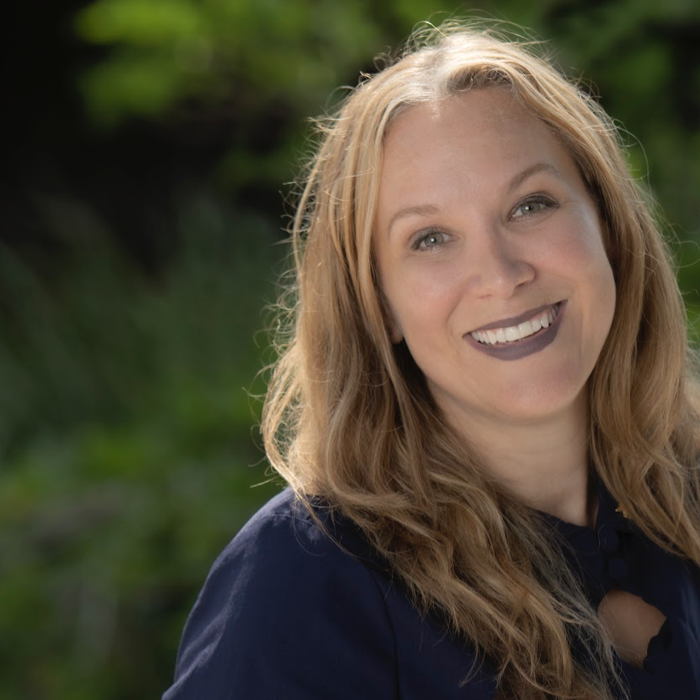
Community-Engaged Research in Autism and ADHD Technologies
October 17, 2024
12:00 p.m. Lunch; 12:30 p.m. Talk
Location: TSRB 1st Floor Ballroom, 85 Fifth St NW, Atlanta, GA 30308
Speaker: Gillian Hayes, Vice Provost for Academic Personnel, Robert A. and Barbara L. Kleist Professor of Informatics, UC Irvine
Abstract: For over two decades, my research has focused on the development and evaluation of technologies to support people with autism and ADHD and their families, friends, and allies. This work, grounded in community-engaged research, reflects a commitment to creating tools that are not only effective but are co-designed with and evaluated by the people who will use them—children, families, educators, and clinicians. From wearable devices to ubiquitous technologies for classrooms and homes, from individual focused to societal and structural interventions, from studying to designing to deploying, the research of my group has spanned a variety of approaches to understanding and supporting the neurodivergent experience.
Throughout this journey, the importance of long-term, sustained partnerships has been paramount. This approach ensures that the technologies we create are deeply relevant to the contexts in which they are deployed, while also addressing the ethical challenges that come with designing for vulnerable and minoritized populations. Community-engaged research is messy and fraught with systemic barriers, including publication biases and the complexities of maintaining relationships over time. Despite these challenges, the outcomes have been profound, with technological innovations leading to real-world impact.
In this talk, I will explore the trajectory of this work, emphasizing key milestones in the development of autism and ADHD technologies. I will also reflect on the lessons learned from twenty years of community-engaged research, including the balance between scientific rigor and ethical responsibility, and the role that interdisciplinary partnerships play in making this work possible. Ultimately, this talk will underscore the critical role of community-driven innovation in shaping the future of technology for our increasingly neurodiverse world.
Bio: Gillian R. Hayes is the Vice Provost for Academic Personnel and the Robert A. and Barbara L. Kleist Professor of Informatics at UC Irvine. She also holds joint appointments in Computer Science and in the School of Education and School of Medicine. Her research interests are in human-computer interaction, ubiquitous computing, assistive and educational technologies, and health informatics. She co-directs the CERES global research network focused on child development and technology, is an elected board member of the Computing Research Association, and has the pleasure of serving on the advisory boards for both Human-Centered Design and Engineering at the University of Washington and the School of Interactive Computing at Georgia Tech. She is a proud Tech alumna and very much looking forward to spending the day with IPaT:GVU friends, new and old.
---
IPaT's fall 2024 lunch lecture calendar and lecture/talk (day of) streaming info can be found here: https://research.gatech.edu/ipat/lunch-lectures.
The IPaT: GVU Lunch Lecture Series is free and features guest speakers presenting on topics related to people-centered technologies and their impact on society. Lunch is provided at 12:00 p.m. and the talks begin at 12:30 p.m. Join us weekly or watch video replays.

Global Health & Wellness: Towards Maternal and Newborn Health in Ethiopia Through Novel, Resource-appropriate Device Solutions
October 10, 2024
12:00 p.m. Lunch; 12:30 p.m. Talk
Location: TSRB 1st Floor Ballroom, 85 Fifth St NW, Atlanta, GA 30308
Speaker: Rudolph L. Gleason, Jr., Ph.D., Professor, School of Mechanical Engineering, School of Biomedical Engineering, Georgia Tech
Abstract: For someone raised in the US, the statistics that quantify health differenes around the world are difficult to comprehend. For example, in 2009, 1 in 11 children in Ethiopia died before their 5th birthday and 1 in 146 women died due to pregnancy complications. These statistics became personal to Dr. Gleason when, in 2009, his daughter Kennedy, whom he and his wife were adopting from Ethiopia, passed away before we could bring her home. This loss birthed in him a newfound passion to help address global health and wellness, that has reshaped his research, teaching, and service activities. Maternal and neonatal mortality rates in Ethiopia are among the highest in the world. In this talk, Dr. Gleason will present some of his recent research toward development of novel biomedical devices aimed at early assessment of risk of cephalopelvic disproportion (CPD) and preeclampsia (PE) in pregnant women in Ethiopia and pilot results for using a wearable device for continuous monitoring of neonates, during the first 7 days of life, in an Ethiopian Neonatal Intensive Care Unit setting. Dr. Gleason will also share his vision as the new initiative lead for Global Health and Wellness in IPaT.
Bio: Dr. Gleason is a Professor in the George W. Woodruff School of Mechanical Engineering and the Wallace H. Coulter Department of Biomedical Engineering, the Faculty Director for the Global Leadership Living-Learning Community, and the Global Health and Wellness Initiative Lead at the Institute for People and Technology at Georgia Tech. Dr. Gleason’s research program has two key and distinct research aims. The first research aim is to quantify the link between biomechanics, mechanobiology, and tissue growth and remodeling in diseases of the vasculature and other soft tissues. The second research aim is to translate engineering innovation to combat global health differences and foster sustainable development in low-resource settings around the world.
---
IPaT's fall 2024 lunch lecture calendar and lecture/talk (day of) streaming info can be found here: https://research.gatech.edu/ipat/lunch-lectures.
The IPaT: GVU Lunch Lecture Series is free and features guest speakers presenting on topics related to people-centered technologies and their impact on society. Lunch is provided at 12:00 p.m. and the talks begin at 12:30 p.m. Join us weekly or watch video replays.

Reframing Climate Data: Situating Data in Histories in Place
October 3, 2024
12:00 p.m. Lunch; 12:30 p.m. Talk
Location: TSRB 1st Floor Ballroom, 85 Fifth St NW, Atlanta, GA 30308
Speaker: Heidi Biggs, Assistant Professor, School of Literature, Media, and Communication at Georgia Tech
Abstract: Climate change is one of the most pressing issues we face today as a society. The phenomenon has inspired new awareness of human entanglements with non-human others (like plants, animals, and ecologies) as well as disparate impacts that fall along familiar lines (laid via histories) of race, gender, class, and access. In this talk, I discuss my research agenda, which uses design and making alongside humanistic theory and sensitivities to lay out critical agendas for Sustainable Human-Computer Interaction (SHCI) and Interaction Design Research. Over the course of two design research projects, I discuss the entanglements of climate change, data, and embodied histories in place. By framing climate change impacts as tied to data practices, unevenly distributed, and historically situated, it shifts narratives to more local, actionable, and justice-oriented interventions. This work ultimately seeks to expand notions of criticality in sustainable HCI research.
Bio: Heidi Biggs is an Assistant Professor at the School of Literature, Media, and Communication at Georgia Institute of Technology. They research Human-Computer Interaction (HCI) and design focused on environmental sustainability in computing. Their approach to sustainability in computing seeks to expand ecological thinking in HCI through local, situated, and critical lenses. They were a pre-doctoral fellow in the Center for Humanities and Informatics and Penn State University and a Hanauer Fellow in Interdisciplinary Humanities at the University of Washington. They hold a PhD in Informatics from Penn State University and a MDes in Interaction Design from the University of Washington. Biggs’ work is featured in ACM SIGCHI conference proceedings such as CHI, CSCW, and DIS, the HCI Journal, as well as arts-based venues such as Textile Intersections in London, and contemporary performance venue On the Boards, in Seattle, WA.
---
IPaT's fall 2024 lunch lecture calendar and lecture/talk (day of) streaming info can be found here: https://research.gatech.edu/ipat/lunch-lectures.
The IPaT: GVU Lunch Lecture Series is free and features guest speakers presenting on topics related to people-centered technologies and their impact on society. Lunch is provided at 12:00 p.m. and the talks begin at 12:30 p.m. Join us weekly or watch video replays.
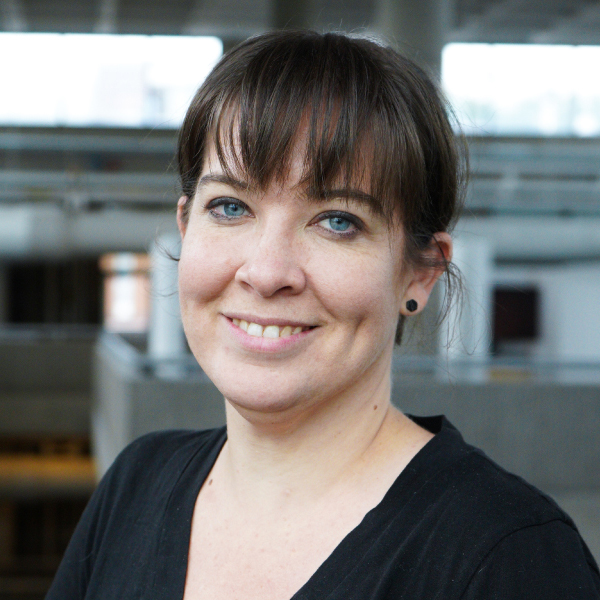
Art and Design: Incorporating Artistic Practice into Design and Technology
September 26, 2024 (LECTURE CANCELLED DUE TO WEATHER FORECAST)
12:00 p.m. Lunch; 12:30 p.m. Talk
Location: TSRB 1st Floor Ballroom, 85 Fifth St NW, Atlanta, GA 30308
Lisa Marks, Ph.D.
Lisa Marks, Assistant Professor of Industrial Design at Georgia Tech
Abstract: While the distinction between art and design is often blurred in practical applications, these fields are frequently compartmentalized and siloed within academic research and study. This separation can hinder the development of truly innovative work that thrives on interdisciplinary thinking. In this lecture, I will delve into my unique process and methodologies for projects that seamlessly blend Art, Craft, and Design, exploring the intersections where these disciplines converge to create new possibilities. We will also examine some of Art's fundamental principles and tenets and discuss how these elements can serve as guiding frameworks for innovative Design work. By drawing connections between these fields, we aim to foster a more integrated approach that challenges traditional boundaries and enriches our understanding of how art can inform and elevate the practice of design. Finally, I will discuss some upcoming plans as the new IPaT Initiative Lead for Arts, Expression, and Creative Technologies.
Bio: Lisa Marks, Assistant Professor of Industrial Design at Georgia Tech, integrates traditional craft techniques with advanced digital design, combining historic with modern technology to demonstrate a unique blend of art and science. Marks’ work has gained international acclaim, notably winning the 2019 International Grand Prix Lexus Design Award. Her research, aiming to preserve endangered crafts and innovate new design methodologies, has led to recognition and opportunities to present at prestigious institutions like Apple, The Marshall Space Center, and Milan Design Week. Marks incorporates her research into her teaching, developing new courses emphasizing the synergy between craft, design, and technology. She has recently been named the IPaT Initiative Lead for Arts, Expression, and Creative Technologies.
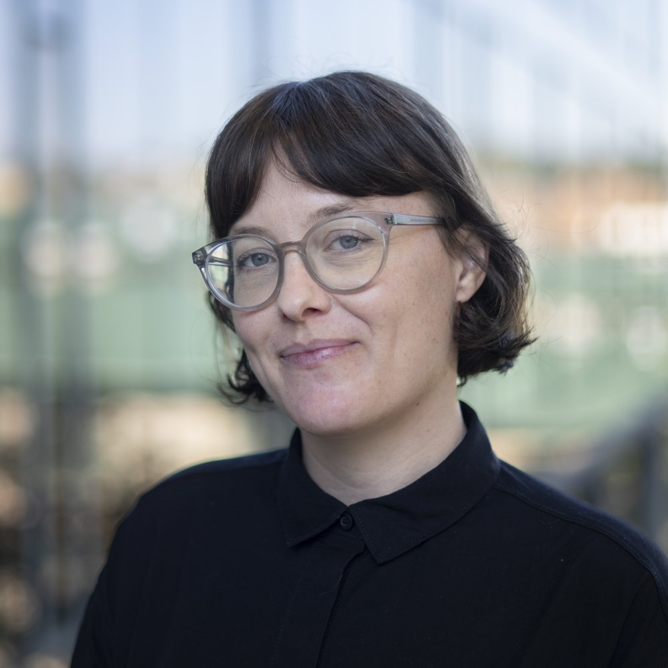
(Re)Working AI: Designing workplace technologies with and for labor
September 19, 2024
12:00 p.m. Lunch; 12:30 p.m. Talk
Location: TSRB 1st Floor Ballroom, 85 Fifth St NW, Atlanta, GA 30308
Sarah Fox, Ph.D.
Sarah Fox, Assistant Professor at Carnegie Mellon University in the Human Computer Interaction Institute
Abstract: Work is transforming rapidly. While some might suggest labor is in a perpetual state of change, the accelerated development and deployment of artificially intelligent (AI) systems within workplaces is set to meaningfully reshape the livelihoods of millions of workers across industries for decades to come. Though proponents see potential in automation as a means to rid work of monotony and boost productivity, many workers and worker advocates view AI as an existential threat to “good jobs” or those that provide meaningful employment, adequate pay, and necessary health benefits. This disconnect is rooted in a fundamental distance between those whose interests are prioritized in the development process and those who end up using the technology. Although the fields of computer-supported cooperative work (CSCW) and human-computer interaction (HCI) have a legacy of exploring methods of promoting worker participation in the design of particular workplace systems, less is understood about how participatory research approaches could be applied across the technology lifecycle—from procurement and integration to governance—to increase value for those on the frontlines. In this talk, Fox will outline the concept of “worker-centered design,” an approach that emphasizes the well-being and input of employees, aiming to enhance not only productivity but also cooperation, autonomy, and fulfillment. Drawing on ongoing ethnographic and design research, she will discuss three distinct cases in sectors facing different forms of technological change: 1) waste management, which is seeing a rise in robotics for sorting and disinfection; 2) public transportation, for which autonomous vehicle technologies are being developed; and 3) hospitality, which regularly employs algorithmic management. Across these sites, Fox describes labor-aligned efforts to evaluate the impacts of AI technologies on work practices and to develop methods and tools to ensure that working people have a voice in the creation, implementation, and governance of technologies in their workplaces.
Bio: Sarah Fox is an Assistant Professor at Carnegie Mellon University in the Human Computer Interaction Institute, where she directs the Tech Solidarity Lab. Her work examines the impacts of AI and automation on essential work sectors, with a focus on developing systems that center workers’ needs and expertise. Her work has earned awards in leading computing venues including ACM CSCW, CHI, and DIS, and has been featured in Design Issues, the Journal of Peer Production, and New Media and Society. Prior to CMU, she was a Postdoctoral Scholar at the University of California, San Diego. She holds a Ph.D. in Human Centered Design & Engineering from the University of Washington and an M.S. in Digital Media from Georgia Tech ('13).
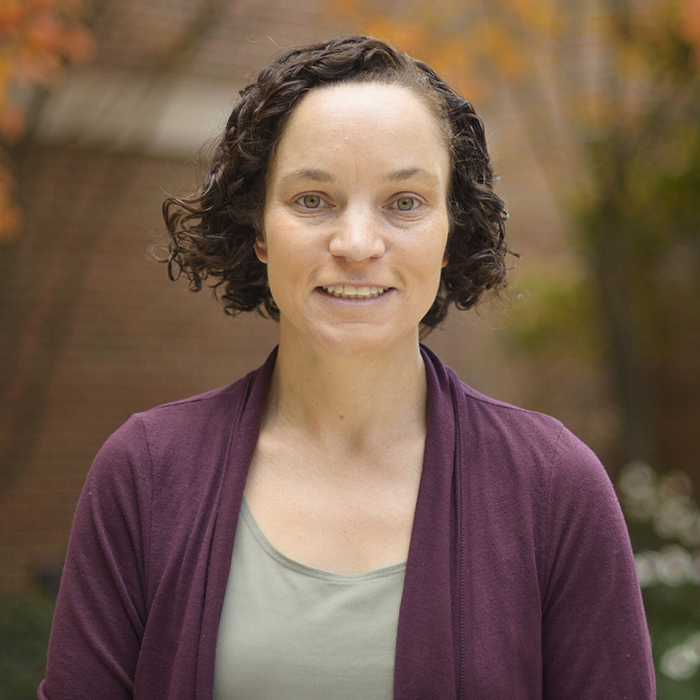
The Sociotechnical Stack: Opportunities for Combatting Non-Consensual Interactions
September 12, 2024
12:00 p.m. Lunch; 12:30 p.m. Talk
Location: TSRB 1st Floor Ballroom, 85 Fifth St NW, Atlanta, GA 30308
Sarita Schoenebeck, Ph.D.
Professor, School of Information at the University of Michigan
Abstract: Non-consensual intimate media (NCIM) refers to sexual, intimate content that is shared without consent. NCIM, which includes AI-generated deepfakes and “revenge porn”, is shared widely online, violating people’s right to privacy, autonomy, and dignity. NCIM is enabled by three enduring characteristics: 1) rights to freedom of expression; 2) an Internet that was designed to be free and open; 3) long-standing gender inequalities. We introduce the metaphor of the sociotechnical stack – a conceptual framework that maps the technical stack to its corresponding social impacts – to combat NCIM.
Our work targets two points of intervention: deterring non-consensual posting before it happens and taking it down after it’s posted. On the deterrence side, we developed and evaluated Hands-Off, an application which uses computer vision to deter screenshotting. Hands-Off requires recipients of an image to perform a hand gesture in the air, above their phone, to view the image – making simultaneous screenshotting difficult. On the takedown side, we evaluated the efficacy of takedown requests sent by victims or their representatives to technology companies. I will discuss opportunities for combatting NCIM across the sociotechnical stack, and the challenges in aligning divergent technical, social, and societal constraints.
Bio: Sarita Schoenebeck is a Professor in the School of Information at the University of Michigan. Her research examines social and technical approaches to creating safer and more equitable experiences online. She is the recipient of the NSF CAREER award, Best Paper and Honorable Mention awards at CHI and CSCW, and ACM CSCW and UMSI Service awards. Her research has been covered in The New York Times, The Washington Post, NPR, and elsewhere. She has taught at Michigan and Yale Law Schools and is a Fellow at the Center for Democracy and Technology. Sarita received her PhD in Human-Centered Computing from Georgia Tech.
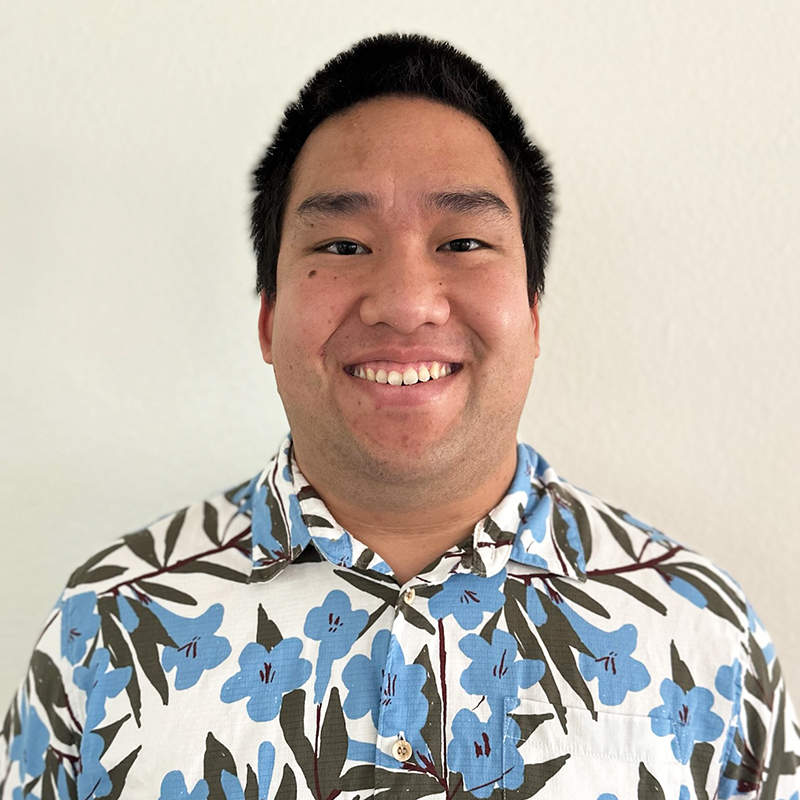
Collaborative Approaches to Haptics and Soft Robotics Research
September 5, 2024
12:00 p.m. Lunch; 12:30 p.m. Talk
Location:
TSRB 1st Floor Ballroom, 85 Fifth St NW, Atlanta, GA 30308
Kyle Yoshida, Ph.D.
Postdoctoral Researcher at Washington State University and incoming Assistant Professor at UCLA
Abstract: Novel haptic interfaces and soft robots are integral to our increasingly digital world. Haptics can enhance robot teleoperation for various tasks including gaming, caregiving, and agriculture, while soft robots enable human-robot interaction and delicate object manipulation due to their flexibility. By leveraging collaborative, community-driven research, we can yield innovative and impactful outcomes aligned with these goals. In this talk, I will highlight several projects spanning mobile tactile displays and soft robotic actuators. Specifically, I will touch upon a 3-DoF wrist-worn haptic device for guidance and communication, a smartphone app used to democratize haptics research, and a versatile soft pneumatic actuator with reconfigurable fiber configurations. Moreover, I will demonstrate how technical expertise derived from research in the lab was coupled with the broader community to propel new research avenues. Making a conscious effort to uncover synergies between community and robotics research provides invaluable opportunities to benefit agriculture, human health, and everyday technology.
Bio: Dr. Kyle Yoshida is a postdoctoral researcher at Washington State University and an incoming assistant professor at UCLA. He received his MS and PhD in Mechanical Engineering at Stanford University and his BS in Bioengineering with an African Studies minor at Harvard University. He received the National Science Foundation Graduate Research Fellowship and the Washington Research Foundation Postdoctoral Research Fellowship. His work spans soft robotics, haptic perception, and human-robot interfaces. In his free time, he serves as Executive Director of Honua Scholars, a STEM mentorship program recognized as one of the Top 10 Native STEM Enterprises by the American Indian Science and Engineering Society.
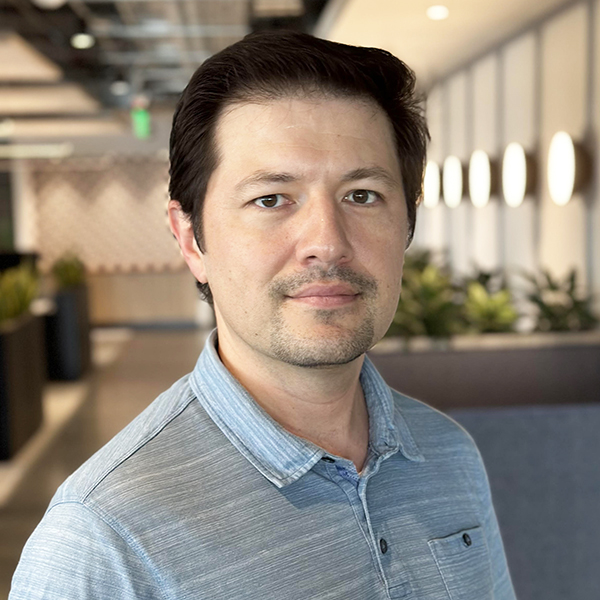
Scaffolding Emergent Futures: From Communities to Infrastructures
August 29, 2024
12:00 p.m. Lunch; 12:30 p.m. Talk
Location:
TSRB 1st Floor Ballroom, 85 Fifth St NW, Atlanta, GA 30308
Sandjar Kozubaev, Ph.D.
Lead Strategist and Researcher, Intuit
ABSTRACT: Design researchers and practitioners have long been interested in shaping futures through objects, systems, and environments. This interest seems to be ubiquitous and is highly visible in industry, popular culture, and scholarly knowledge production. At the same time, local communities, particularly in the U.S., have been dealing with pressures of disinvestment in public and social services, along with the encroachment of privatization and commercial interests. This created an acute need for communities to foster alternative ways of being and knowing, opening emergent futures that are less visible but just as impactful. How might designers notice these future-making practices? Is there a role for design to take part in them? In this talk, we will explore some theoretical and methodological possibilities to answer these and other questions about design speculation and future making.
BIO: Sandjar Kozubaev is a researcher, designer and educator. He currently works at Intuit Mailchimp, a marketing technology company, as lead Strategist & Researcher. His areas expertise includes design research, participatory design, service design, and futures studies. Sandjar has worked with Fortune 500 companies in the financial services, consumer products, pharmaceuticals, telecommunications, automotive and other industries as well as non-profit organizations. His scholarly research focuses on civic and social design and emergent community-based alternative design practices.
Sandjar has a BA and MS in economics from Tashkent Oriental Studies Institute (Uzbekistan) and University of St Andrews (Scotland), respectively. He also has an MBA in Design Strategy from California College of the Arts. He holds a PhD in Digital Media at Georgia Institute of Technology.

Health, resilience, responsibility, and the arts: Things happening at the Institute for People and Technology
August 22, 2024
12:00 p.m. Lunch; 12:30 p.m. Talk
Location:
TSRB 1st Floor Ballroom, 85 Fifth St NW, Atlanta, GA 30308
Michael Best, Ph.D.
Executive Director, Institute for People and Technology Professor, Sam Nunn School of International Affairs, and professor in the School of Interactive Computing Director, Technologies and International Development Lab
ABSTRACT: For the first IPaT: GVU Lunch Lecture of the academic year, Michael Best, executive director of the Institute for People and Technology (IPaT), will present an overview IPaT’s activities and offerings, and welcome the team and our partners. IPaT has four new research foci, and he will introduce the new research Initiative Leads: Professors Rudy Gleason (Global Health and Wellbeing), Danielle Willkens (Resilient and Informed Communities), Allen Hyde (Responsible and Ethical Technologies), and Lisa Marks (Arts, Expression, and Creative Technologies). Each Initiative Lead will develop programs to enhance interdisciplinary research, community, funding opportunities, and impact in their areas. Best will also foreshadow some of this term’s events, including a stellar line-up for the Lunch Lecture series itself, the upcoming Wearable Innovations for Health Workshop, the Fall Town Hall, and other programs. IPaT’s emerging global initiatives will be overviewed, with activities currently in Asia and Africa. He will announce this Fall’s IPaT/GTRI Research & Engagement Grant recipients. Finally, for folks new to IPaT, he will present IPaT's infrastructure and service offerings, such as its Craft and Prototyping Lab and the Aware Home. The lecture will end with an opportunity for conversation, input, and interaction.
BIO: Michael L. Best is executive director of the Institute for People and Technology (IPaT). He is a professor at the Sam Nunn School of International Affairs and the School of Interactive Computing where he directs the Technologies and International Development Lab. He was founding director of the United Nations University Institute on Computing and Society (UNU-CS) in the Macau special administrative region. He has also served as a fellow and faculty associate of the Harvard Berkman Klein Center for Internet and Society. In addition, he serves as associate editor for global computing with Communications of the ACM and co-founder and editor-in-chief emeritus of the journal Information Technologies and International Development. He has published over 100 peer-reviewed papers in books, journals, and conferences since joining Georgia Tech in 2003. He has delivered more than 100 invited and keynote lectures across the USA and internationally. Best holds a Ph.D. and master’s degree from MIT and has served as director of Media Lab Asia in India and head of the eDevelopment group at the MIT Media Lab. He received his computer science and engineering bachelor’s degree from the University of California, Los Angeles.




